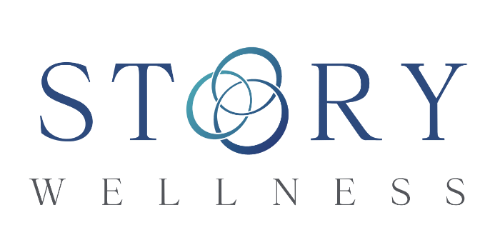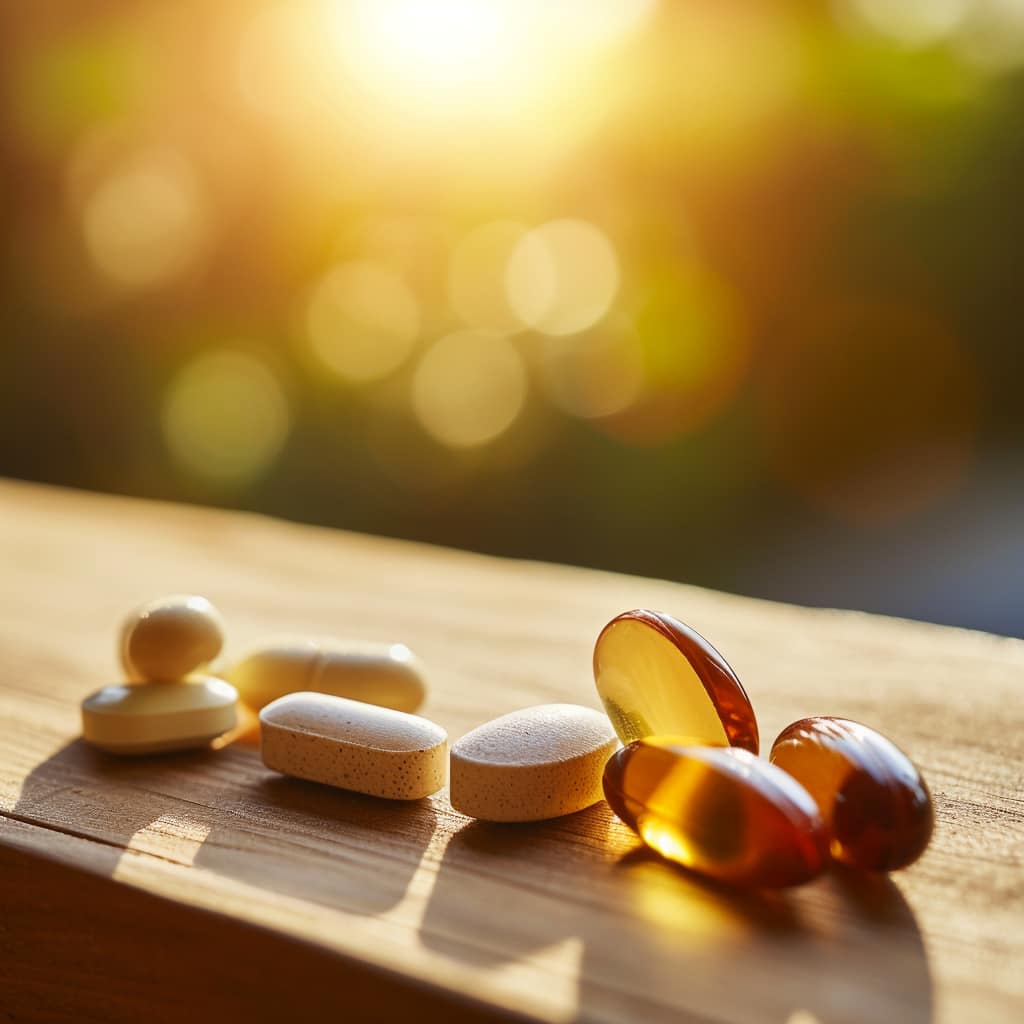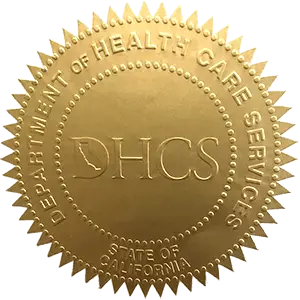Depression, a word that rightly carries a heavy cloud, affects millions of people in the US. Yet the daily reality remains a mystery for many. Even more of an issue is treating depression. There are plenty of medications that can make a difference. But medication is not for everyone. If you find yourself looking for alternative options to help with your depression, here are some vitamins and supplements that could help. But please remember, always consult your physician before taking any of these.
The Role of Nutrition, Vitamins and Supplements in Mental Health
Ever heard of the phrase “You are what you eat”? It turns out there’s more truth to it than we thought, especially when it comes to mental health. Our brain is an energy-intensive organ, relying on various nutrients to keep it functioning properly. A deficiency in certain vitamins and minerals can wreak havoc on our mood and cognitive functions.
Contact Story Wellness
Spotlight on Key Vitamins and Supplements for Depression
Omega-3 Fatty Acids
These fatty acids are the brain’s best friend. Found in fish oil and flaxseeds, they play a crucial role in brain function and mood regulation. Research suggests that omega-3 supplements can help reduce the symptoms of depression. However, if you’re more of a “fish are friends, not food” kind of person, algae-based supplements are a great alternative. Just watch out if you’re on blood-thinning medication, as omega-3s can enhance their effects.
Vitamin D for Depression
Often known as the sunshine vitamin, Vitamin D has a mood-boosting effect. Low levels of Vitamin D have been linked to depression, especially in those dreary winter months. While sun exposure is the best source, supplements are a great plan B. But remember, moderation is key; too much Vitamin D can lead to health issues like kidney stones.
B Vitamins (B12 and Folate)
These are the unsung heroes for brain health and energy. B12 and folate deficiencies can lead to a range of mental health issues, including depression. They’re especially important for vegetarians and vegans, as B12 is primarily found in animal products. But, just like a superhero movie, too much of a good thing (high doses) can lead to side effects.
Magnesium for Depression
This mineral is like the helper bee of the nutrient family – it helps with brain function and mood regulation and even assists with sleep, which is often disrupted in depression. But, it can be a bit too enthusiastic, causing digestive issues if taken in high doses.
Probiotics
Gut health and mental health are closely related. A healthy gut can mean a healthy mind, and probiotics play a big role in maintaining that gut health. They’re generally safe, but if you’re new to probiotics, start slow to avoid upsetting your stomach.
Science Behind the Supplements for Depression
While the evidence supporting these supplements is promising, it’s important to approach them with a critical lens. Studies have shown varying degrees of effectiveness, and what works for one person may not work for another. For example, a meta-analysis in the Journal of Clinical Psychiatry found that omega-3 supplements had a more significant effect in patients with diagnosed depression compared to those without.
It’s also worth noting that supplements are not a one-size-fits-all solution. Factors like individual biochemistry, the severity of symptoms, and existing medical conditions play a crucial role in determining their effectiveness. That’s why it’s crucial to consult a healthcare professional before starting any new supplement.
Holistic Approach to Depression
While vitamins and supplements might offer a glimmer of hope, they are just one piece of the puzzle. A holistic approach to treating depression includes therapy, medication (when necessary), lifestyle changes, such as exercise and diet, and social support. Mental health is a complex tapestry woven from various threads of our lives, and it requires a multifaceted approach to care.
Regular Exercise for Depression
Absolutely, it’s not just for the gym enthusiasts. Exercise is like a natural antidepressant. It boosts endorphins—those feel-good hormones—and can improve your mood, energy levels, and even sleep. You don’t have to run marathons; a brisk walk, yoga, or a dance-off in your living room can do wonders. Think of it as moving your mood meter from ‘meh’ to ‘marvelous.’
Consider Prayer and Meditation
Mindfulness, prayer, and meditation are like giving your brain a break from the constant voices that bring it down. They help you focus on the present moment, reducing the stress and anxiety that often accompany depression. Studies have shown that regular practice can actually change your brain in ways that are beneficial for managing depression. So, unroll that yoga mat or find a quiet corner and let your mind take a breather.
Food for Depression
Food isn’t just fuel; it’s also a mood modifier. As mentioned before, omega-3 fatty acids (hello, salmon and walnuts), whole grains, leafy greens, and lean protein can be great for your mood. On the flip side, try to cut down on the usual suspects: excessive caffeine, alcohol, and sugar. These can give you a quick high, followed by a not-so-pleasant crash, kind of like a roller coaster ride for your mood.
Sleep and Depression
Poor sleep can exacerbate depression symptoms, while good sleep habits can help you manage them. It’s all about quality, not just quantity. Aim for a relaxing bedtime routine, a comfy sleep environment, and try to keep a consistent sleep schedule. Think of it as recharging your brain’s batteries.
Social Aspect of Depression
Humans are social creatures, even the introverts among us. Connecting with others can provide emotional support, reduce feelings of isolation, and even give you a different perspective on life’s challenges. It doesn’t mean you need to be the life of the party, but you should reach out beyond social media. Even small interactions, like a chat with a friend or joining a club, can light up your social skies.
Ready to turn the page on your mental wellness story? At Story Wellness in Orange County, CA, we believe in empowering you with knowledge and support. Depression is a clinical diagnosis, and usually supplements can only do so much. Therapy and counseling make a difference. Call Story Wellness today and talk to one of our depression specialists. Give yourself a chance to start a new chapter in your wellness journey.






